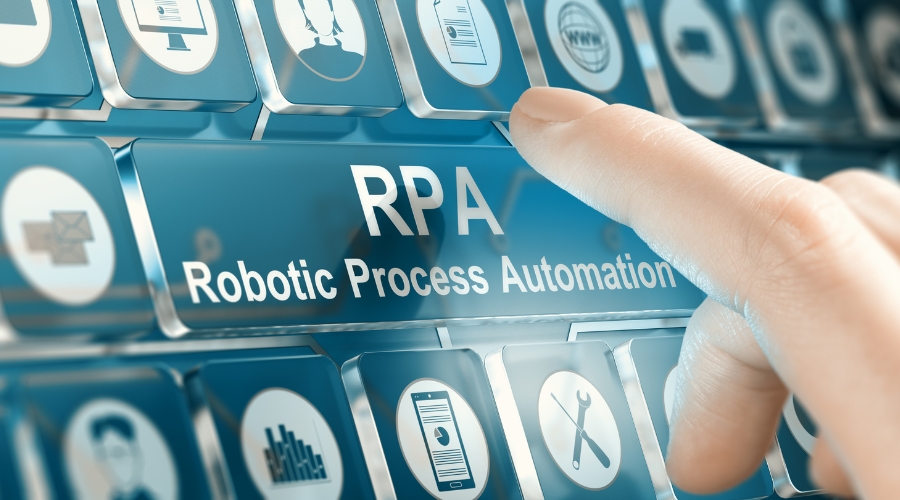How to Become an RPA Developer
Are you interested in becoming an RPA (Robotic Process Automation) developer in 2024? With the rapid advancement of technology, RPA has become a sought-after skill in various industries. Whether you’re a recent graduate looking to start a career or a professional aiming to switch fields, becoming an RPA developer can open up exciting opportunities. In this guide, we’ll explore the steps you can take to embark on this journey and build a successful career in RPA development.
In today’s digital age, automation is revolutionizing the way businesses operate, and RPA plays a crucial role in streamlining processes and increasing efficiency. As an RPA developer, you’ll be responsible for creating software robots that can automate repetitive tasks, freeing up time for employees to focus on more strategic initiatives. With the demand for RPA developers on the rise, now is the perfect time to invest in acquiring the skills and knowledge needed to thrive in this dynamic field.

What is RPA?
Robotic Process Automation (RPA) is a technology that uses software robots, known as “bots,” to perform tasks that are repetitive and are usually done by people. These bots can do things like entering data, getting responses, and doing calculations, just like humans. RPA is used in many industries to make work faster, reduce mistakes, and increase productivity.
Why Become an RPA Developer?
Being an RPA developer has many advantages. RPA is a field that is growing quickly, so there is a high demand for skilled professionals. As more businesses want to automate their tasks, the need for RPA developers will continue to grow. RPA developers also have the benefit of competitive salaries and opportunities for career growth. By choosing this career path, you can set yourself up for a successful and fulfilling career in the field of technology.
Steps to Become an RPA Developer
Education and Skills
To become an RPA developer, you’ll need a strong foundation in programming languages like Java, Python, or C#. It’s also helpful to have a background in computer science, information technology, or a related field. Additionally, you should understand business processes well and be good at analyzing and solving complex problems.
RPA Tools and Technologies
Become familiar with popular RPA tools and technologies such as UiPath, Automation Anywhere, and Blue Prism. These platforms offer training and certification programs that can help you learn the skills needed for RPA development.
Certifications
Getting RPA certifications can boost your credibility and show potential employers that you’re skilled in RPA development. Look for certification programs from RPA vendors and industry organizations, like the UiPath Certified Professional Program or the Automation Anywhere Certified Advanced RPA Professional certification.
Practical Experience
Gain hands-on experience by working on RPA projects, whether through internships, freelance work, or personal projects. This practical experience will not only improve your skills but also make you more attractive to employers.
Job Market for RPA Developers
The job market for RPA developers is booming, with many job openings in different industries. Companies are actively looking for skilled RPA developers to help them automate tasks and improve efficiency.
Salary Outlook for RPA Developers
RPA developers are paid well for their skills. Reports suggest that the average salary for RPA developers is between $80,000 and $120,000 per year, depending on their experience and where they work.
Challenges and Opportunities in RPA
While RPA has many benefits, it also comes with challenges like integrating it into existing systems, making sure it can grow with the company, and keeping it running smoothly. But these challenges also mean there are opportunities for RPA developers to come up with new ideas and solutions.
Tips for Success as an RPA Developer
- Stay updated with the latest trends and technologies in RPA.
- Network with professionals in the field and participate in RPA communities and forums.
- Continuously improve your skills through training and certifications.
- Seek out opportunities to work on challenging and innovative RPA projects.
Conclusion
Becoming an RPA developer in 2024 can open up exciting career opportunities in technology. By following the steps outlined in this guide and staying dedicated to your professional development, you can build a successful career in RPA and contribute to the advancement of automation technology.
FAQs
Skills for Becoming an RPA Developer:
- Knowledge of programming languages like Python, Java, or C#
- Understanding of automation tools like UiPath, Automation Anywhere, or Blue Prism
- Ability to analyze and solve problems
- Attention to detail
- Strong communication skills
Time to Become Proficient in RPA Development:
- It can take several months to a year to become proficient in RPA development, depending on your background and the complexity of the projects you work on.
Industries with High Demand for RPA Developers:
- Banking and Finance
- Healthcare
- Retail
- Manufacturing
- Insurance
Key Differences Between RPA and Traditional Automation:
- RPA can mimic human actions on a computer, while traditional automation typically involves scripted commands.
- RPA can work across multiple applications without the need for APIs, while traditional automation often requires APIs for integration.
- RPA is easier to implement and can be used by non-technical users, while traditional automation may require more technical expertise.
Transitioning into a Career in RPA Development:
- Learn RPA tools and technologies through online courses or certifications.
- Gain hands-on experience through projects or internships.
- Highlight transferable skills from your current field, such as problem-solving or analytical skills, that are relevant to RPA development.
- Network with professionals in the RPA industry and attend industry events to learn more about the field.
Related Topics:

